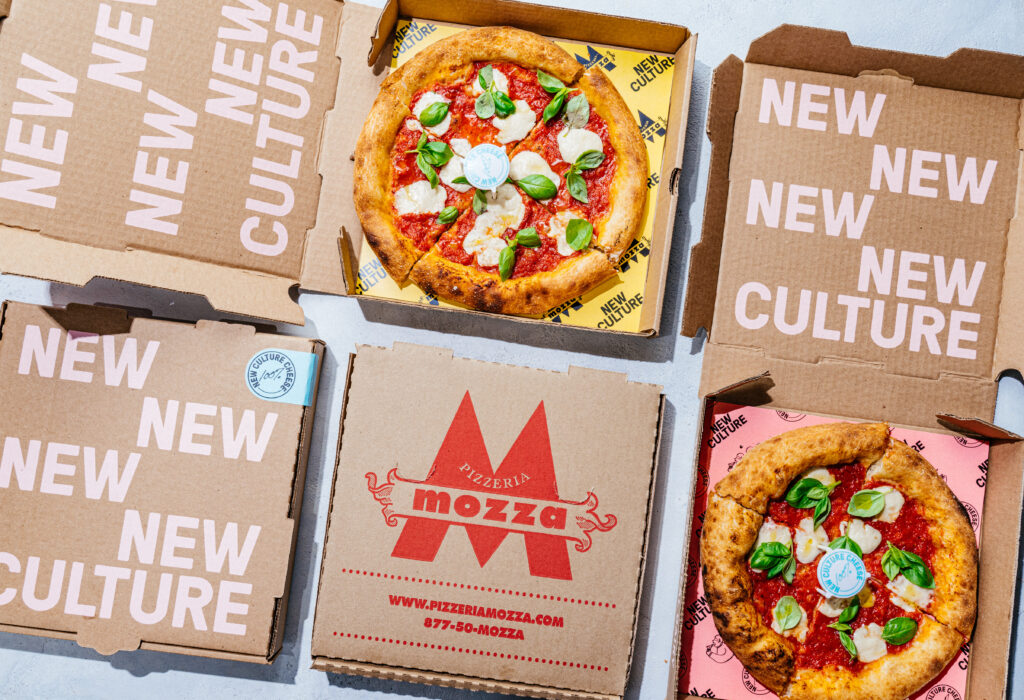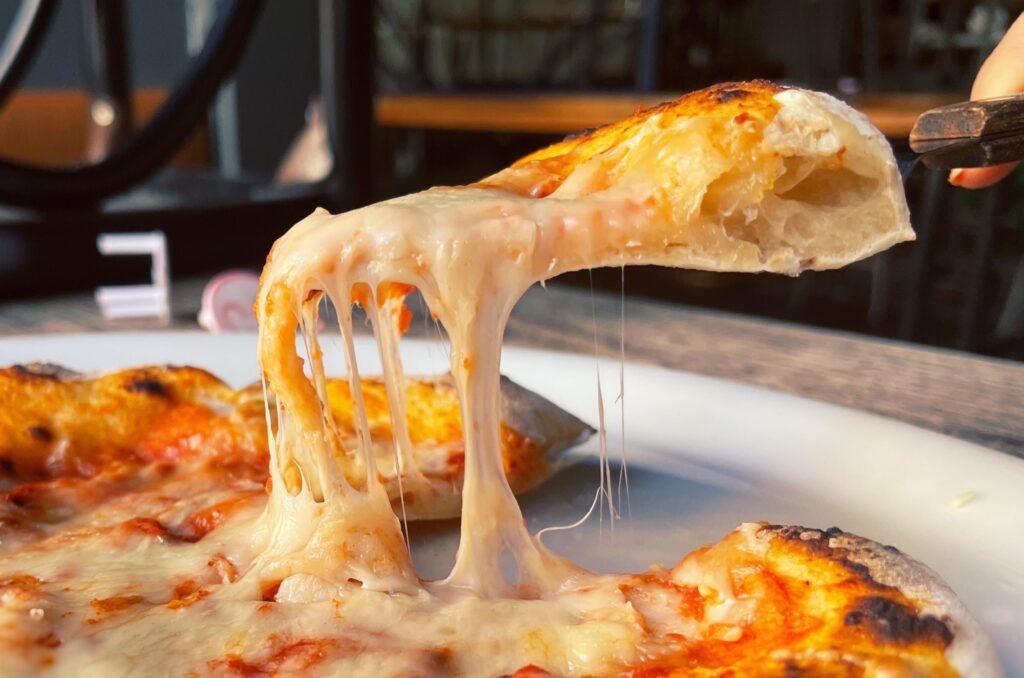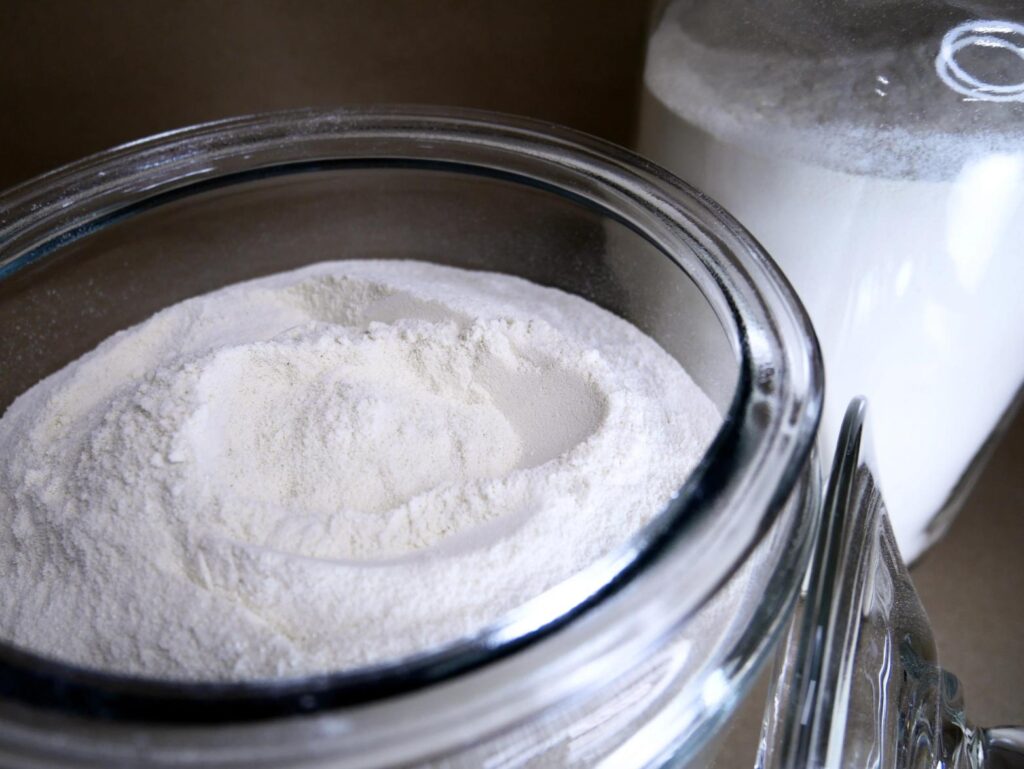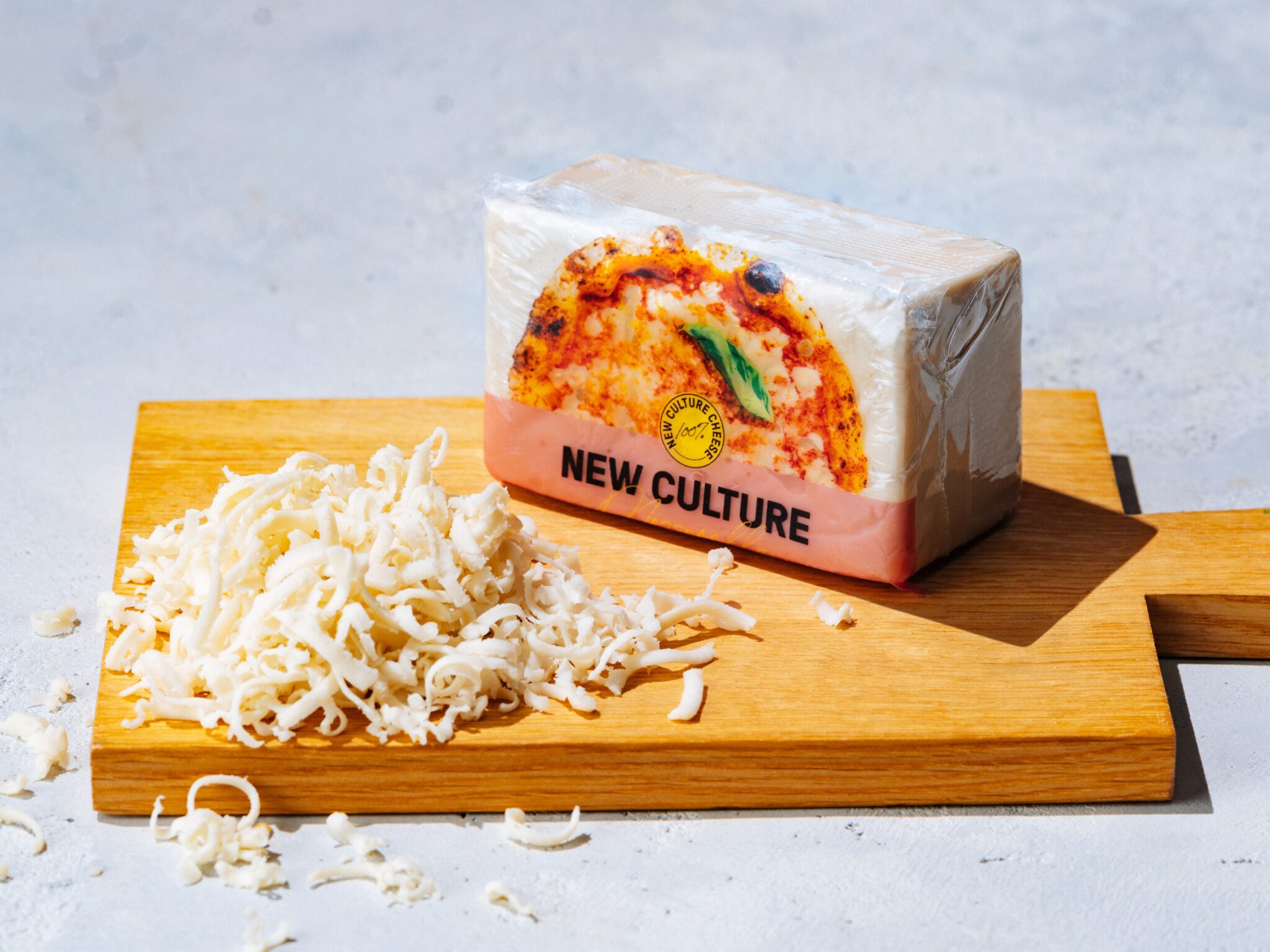New Culture Earns ‘World’s First’ Self-Affirmed GRAS Status for Precision-Fermented Casein
7 Mins Read
US precision fermentation company New Culture has obtained what it claims is the world’s first self-affirmed GRAS (Generally Recognized as Safe) status for animal-free casein in the US, paving the way for its market entry with Nancy Silverton’s Pizzeria Mozza later this year.
San Francisco startup New Culture has earned the first self-affirmed GRAS certification for precision-fermented casein in the US, marking a milestone for the animal-free dairy industry.
This makes it the only precision-fermented casein producer allowed to sell casein as a food ingredient in the US. The company intends to notify the FDA of its self-GRAS determination “in the near future”, and will scale its manufacturing capacity to prepare for the first sales of its cheese later this year, starting with Nancy Silverton’s Los Angeles eatery, Pizzeria Mozza.

“Achieving GRAS status proves that animal inputs aren’t needed to produce casein protein and marks an essential step on our path toward commercialisation,” said New Culture co-founder and chief science officer Inja Radman, calling it a “testament to the hard-working and innovative team”.
New Culture to debut at Pizzeria Mozza later this year
Founded in 2018, New Culture’s first product is a precision-fermented mozzarella for pizza, which is said to melt, stretch, bubble and brown like conventional cheese and comprise a superior mouthfeel and texture to plant-based options.
Casein is the main protein found in milk – making up 80% of the total protein content – and is responsible for emulsification attributes, which help prevent water and fat from separating and give the cheese its melty and stretchy properties. While many precision-fermented dairy companies work on whey, this protein “only makes limited cheeses” like ricotta and cream cheese, according to New Culture co-founder Matt Gibson. Casein, however, enables you to make any kind of cheese with traditional cheesemaking processes.

To make its mozzarella, New Culture takes its powdered casein and adds “water, fat, a touch of sugar, vitamins, and minerals to match the profile” of conventional mozzarella as closely as possible, according to marketing director Priya Kumar. “The nutritional profile of our cheese is very similar to conventional, animal-based cheese. However, unlike conventional cheese, ours is free from cholesterol, lactose, and trace hormones and antibiotics because we don’t use any animal-derived ingredients,” she told Green Queen in August.
The structural properties of whey can make it more difficult to produce and scale up in a cost-effective manner. But New Culture’s animal-free casein can produce cheese worth 25,000 pizzas per batch. Scaling up to these amounts will also reduce manufacturing costs by 80% and enable production capacity to reach price parity with conventional mozzarella in three years, when it predicts its annual casein volumes to reach more than 14 million pizzas’ worth of cheese.
The company, which raised $25M in an oversubscribed Series A funding round in 2021, unveiled its precision-fermented mozzarella for a tasting at Pizzeria Mozza in May last year. “I’ve always been of the school of thinking that just because it’s a substitute doesn’t mean it needs to be anything less than spectacular,” Silverton said at the time. “When I tried New Culture cheese, I was surprised and excited by the integrity of the product and really felt it lived up to our standards.”
Now, as New Culture continues to scale its production capacity, Pizzeria Mozza will be the first restaurant to offer its animal-free cheese on the menu.

Consumer interest and climate credentials
There are about 30 precision fermentation companies working on dairy worldwide, and most of them – like Perfect Day, Remilk and Imagindairy – are focused on whey proteins. New Culture is part of a handful that are working on casein, though – Aussie-American producer Change Foods, Austria’s Fermify, Indian startup Zero Cow Factory, and Paris-based Standing Ovation are also part of this space. California’s Nobell Foods, meanwhile, makes soy-derived casein using molecular farming, and New York-based Pureture produces a yeast-derived vegan casein from liquid fermentation.
According to one estimate, the casein sector will be worth nearly $5B in 2033, growing by 6.3% annually from 2023. Animal-free versions of the protein are of growing importance for both their functional properties and environmental benefits. As mentioned above, casein is a key emulsifier that enables better textures for cheese – this is crucial, considering that 73% of Americans are unhappy with the texture of vegan cheese and want creamy products that taste and melt better.
Likewise, a survey by New Culture last month revealed that four in five respondents – 80% of whom were meat-eaters – are willing to purchase animal-free cheese. And while early adopters are happy to pay $4 more per pizza with the company’s cheese, taste remains key, with 59% of respondents saying they’d avoid analogue foods if they didn’t taste as good.

And according to an independent life-cycle assessment (LCA) by Standing Ovation, precision-fermented casein needs up to 94% fewer greenhouse gas emissions compared to its conventional counterpart – although the LCA was done at pilot scale, and an industrial-scale analysis would provide a more rounded picture.
The overall fermentation protein category has raked in nearly $4B in total investment, signalling positive interest from consumers and investors alike. In March 2023, a survey by Perfect Day, Cargill and the Hartman Group found that 77% of US adults are willing to try precision fermentation products once they understand its benefits. Similarly, Germany’s Formo teamed up with the University of Saskatchewan in May for a landmark study, which revealed that 79% of UK dairy consumers are seeking cheese produced from microbes.
What New Culture learnt from its self-affirmed GRAS status
Before New Culture, the only precision-fermented dairy companies that had some form of GRAS certification were working on whey. These include Perfect Day, Remilk, Imagindairy and TurtleTree – the former three have ‘no further questions’ letters from the FDA, while the latter has a self-affirmed status like New Culture and plans to file FDA approval this year.
Self-affirmed GRAS certification doesn’t legally require FDA review – instead, companies only need to conduct a safety approval by a scientific panel, which can include both internal and external experts. This can be done without notifying the FDA or disclosing safety data publicly, which helps maintain confidentiality around proprietary information and trade secrets.
It’s an easier and cheaper way to commercialise, as well as being much faster, given full FDA approval can take between six months to a year. But it does mean companies are making their own safety assessments independently from the FDA (while complying with its requirements).
This is why many companies prefer to go through the GRAS notification process, which is much more rigorous and requires the submission of a host of comments, including both positive and negative reviews and studies of a company’s ingredients. If approved, the FDA sends the ‘no further questions’ letter, deeming the ingredient safe for sale. This is seen as a more transparent process with publicly available data and breeds both market and consumer confidence. And it’s why New Culture will embark on this path too.

Its self-affirmed GRAS status comes after it spoke to other companies who have gone through the process and reviewed their dossiers. There were four themes that emerged during New Culture’s research:
- The GRAS programme views safety in the context of use – how much of the ingredient are people going to eat? Will some eat lots more than others? Is it an addition or supplement to existing diets? “The answers to these questions are crucial in understanding the risk profile of the ingredient and, therefore, the safety of the ingredient,” the company wrote.
- Thinking holistically about the ingredient’s manufacturing process is vital. It’s not merely the inputs and outputs that matter, but the vessels and piping and surfaces that help transform the inputs into outputs,” explained New Culture. “Paying close attention to ‘contact surfaces’ is essential.”
- To be considered safe, a manufacturing process needs to be reproducible and consistent – the company can’t produce its casein just once, or have a production process that changes with each run. “It’s not enough to demonstrate the production of a clean ingredient one time – it must be demonstrated multiple times,” it said.
- You can learn a lot from the other companies who have undergone the GRAS process, with such “best-in-class examples for industry-standard ingredients” helping New Culture prepare for its own process: “By scouring those companies’ dossiers, it was possible to get a sense for the sort of evidence that demonstrates food safety.”
“We are redefining the boundaries of what’s possible in dairy in a way that isn’t being done anywhere else,” Radman said in August. Now, New Culture is hoping to change the pizza world with its casein after what is a landmark announcement for precision fermentation.
It comes a week after Nestlé, the world’s largest food company, also delved into the technology with its first precision-fermentation-derived whey protein powder under the Orgain brand.




